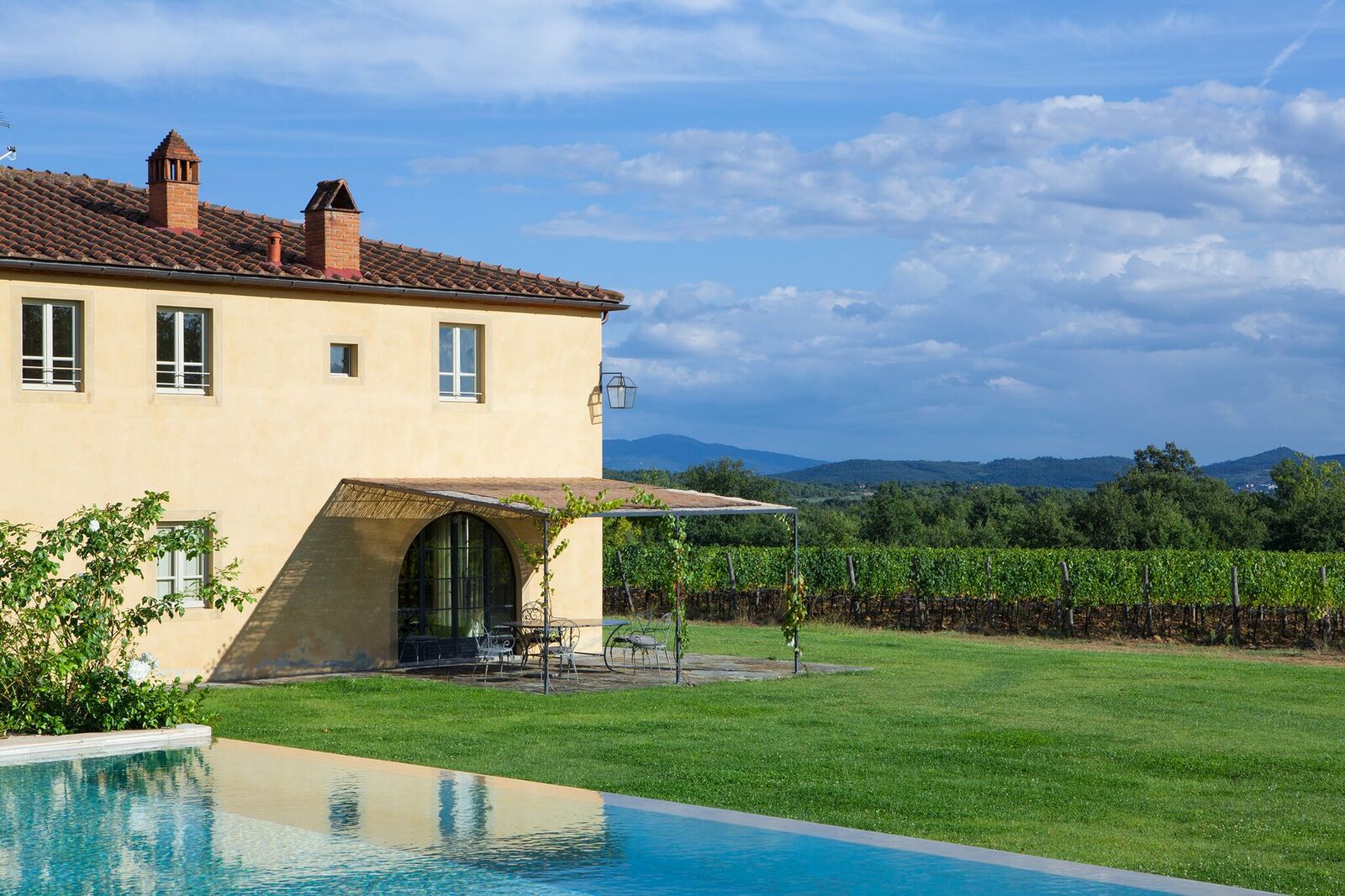
[Photo: Courtesy of Il Borro]
Surrounded by the rolling hills of the Chianti and Apennine mountains, Il Borro is more than just a beautiful Tuscan hotel with luxurious accommodations—it’s a community of big families running small farms and vineyards, coexisting in harmony with nature. Medieval-inspired architecture, spacious Italian villas, and charming suites make Il Borro a picturesque ancient village.
In the 12th century, what is now a restored medieval village was once a fortified and heavily sought-after castle. The origin of the name “Il Borro” comes from its position on a bluff above a river—the Tuscan word “borro” means a gorge formed by a river.
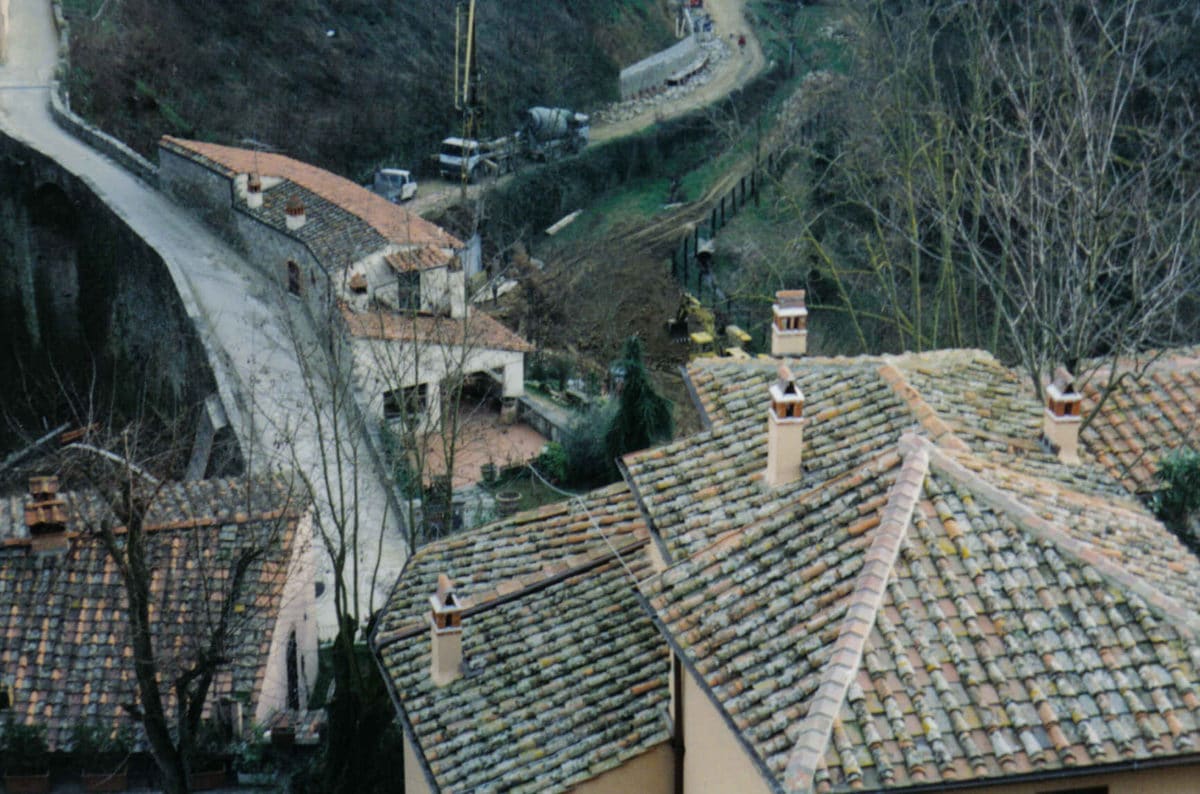
Il Borro had significant damage in 1997 prior to the Ferragamo family’s restoration project. [Photo: Courtesy of Il Borro]
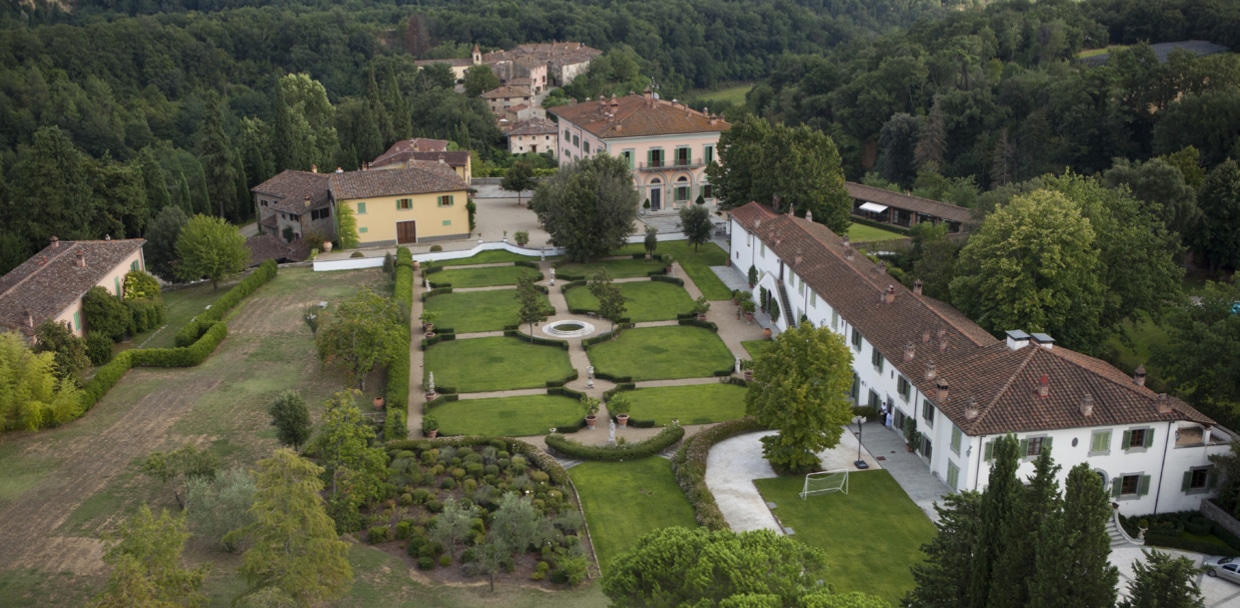
Il Borro after its renovations. [Photo: Courtesy of Il Borro]
The Restoration
When the Ferragamo family bought the Il Borro estate in 1993, it was desolate and abandoned with heavy land erosion and limited infrastructure—every rooftop leaked. But Ferruccio Ferragamo was inspired to return everything to its original condition, from the wine cellars to paved roads.
“This amazing piece of history was once left out of commission, but thanks to the Ferragamo family, it’s now an active property being brought back to life, while still honoring its roots,” says Chris Howe, editor-in-chief of gb&d, who recently visited Il Borro.
An avid wine lover, Ferruccio happily showed Howe his collection of beautiful wine-related etchings in the museum. He also shared his love of polo—he still plays with his family and friends there.
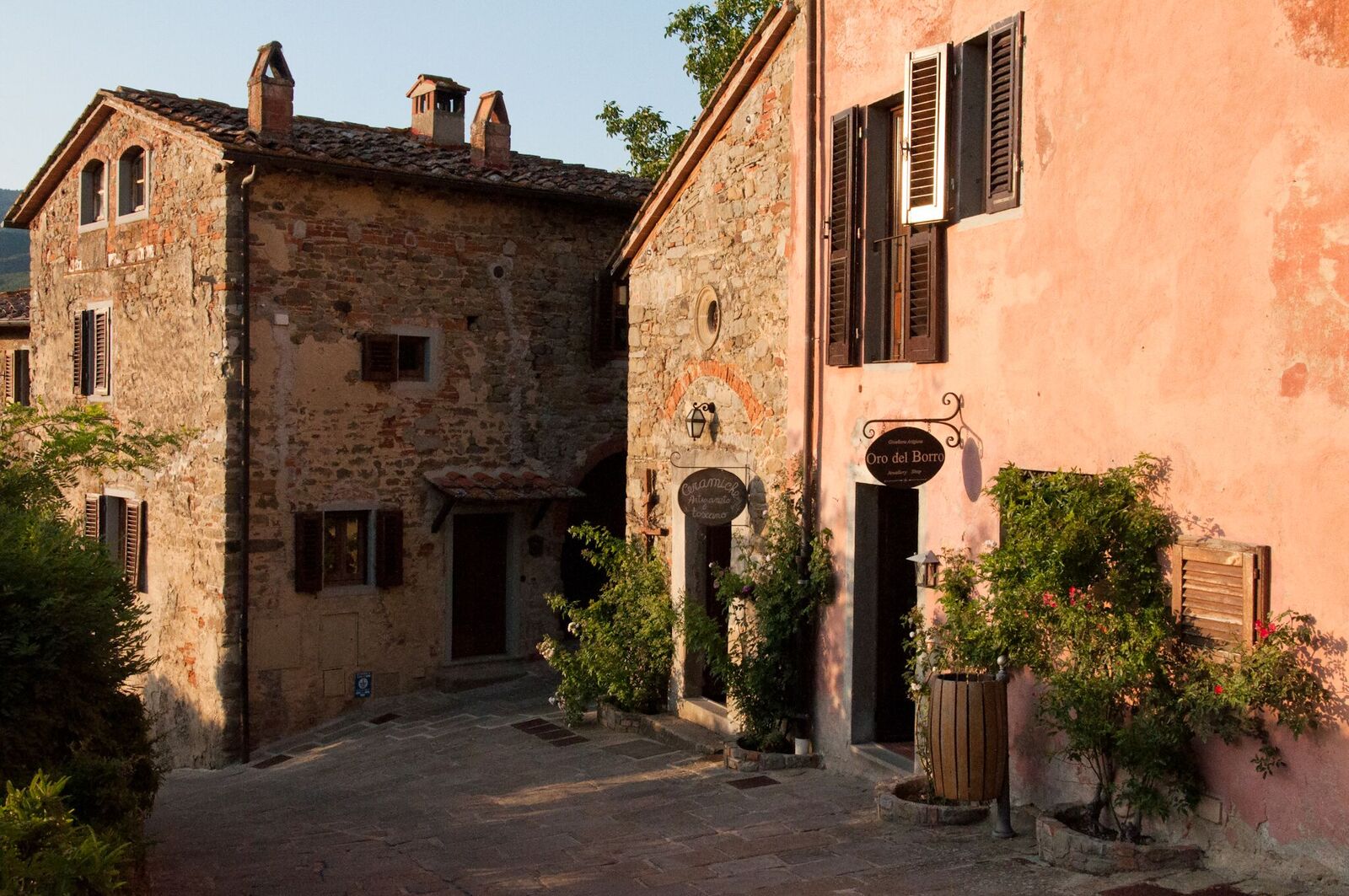
[Photo: Courtesy of Il Borro]
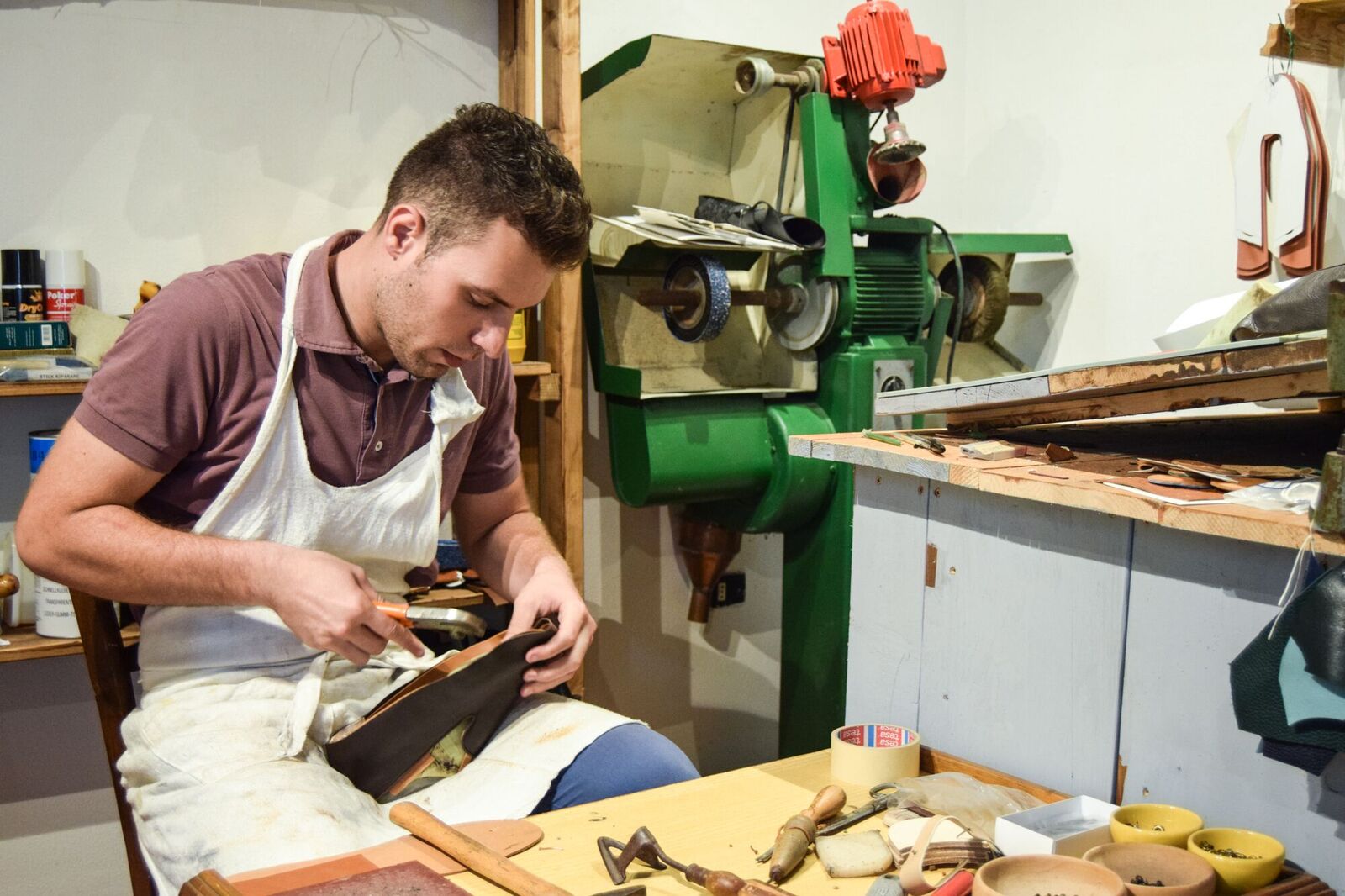
[Photo: Courtesy of Il Borro]
Artisans & Craftsmen
Ferruccio honors the tradition of the site by maintaining craftsmen. He employed local workers and welcomed artisans, including pottery makers, jewelry makers, painters, and shoemakers. While exploring the craft workshops in the village, you will find shops filled with passion and knowledge handed down from generation to generation. Artisans welcome you with a smile and an open door, excited to share their history and art with you through conversations and classes.
“We have kept the feeling of a 1,000-year-old village, but we have also provided modern comforts for our guests with the more contemporary Tuscan-style renovations,” says Salvatore Ferragamo, Ferruccio’s son and assistant director of Il Borro.
Today, in the beautifully restored village, the tight-knit community spirit still lives on. Whether people-watching at the piazza or wine tasting and learning about the Tuscan wine-making tradition, you will feel connected to the rich history of the people and the land.
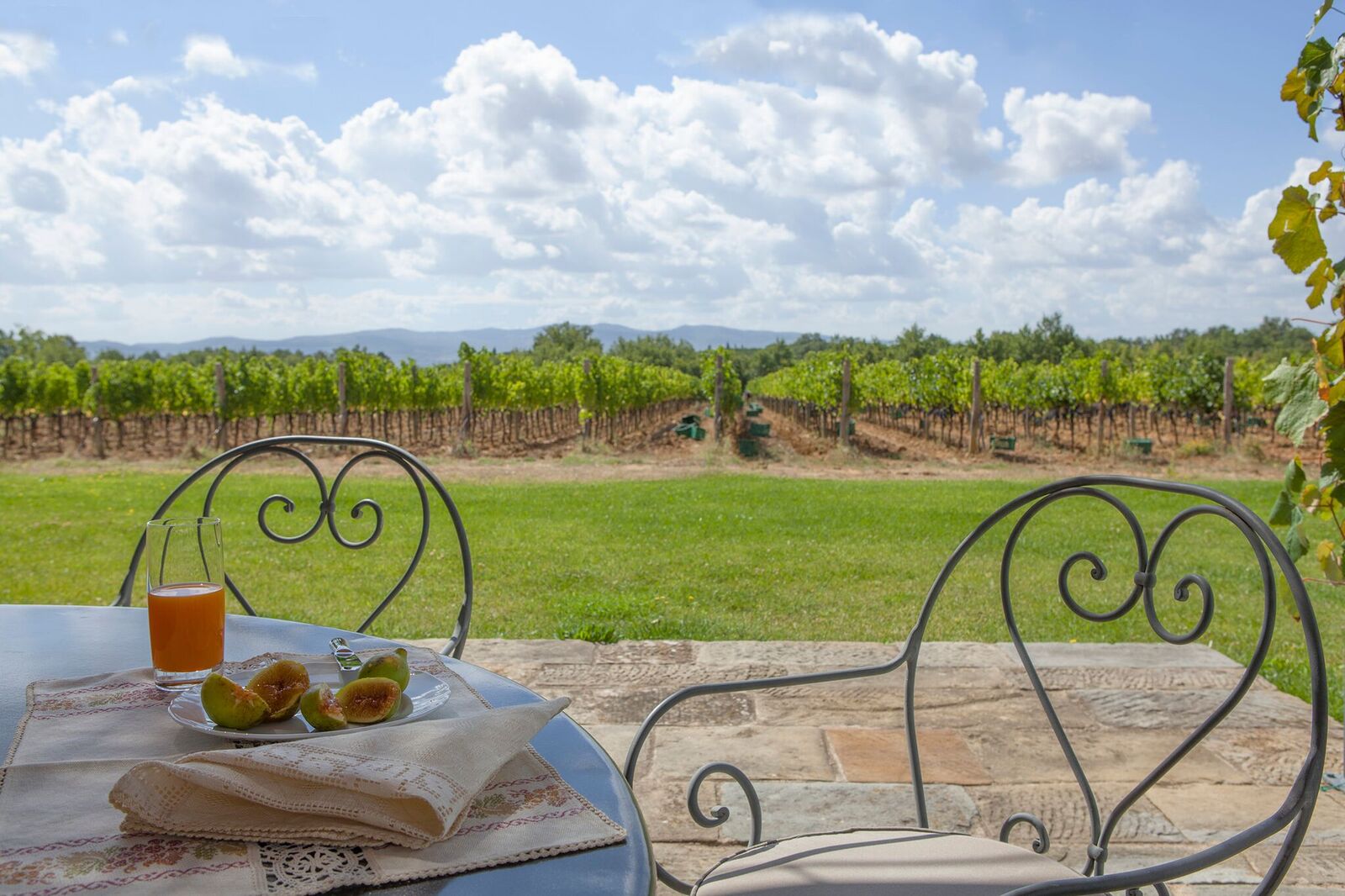
[Photo: Courtesy of Il Borro]
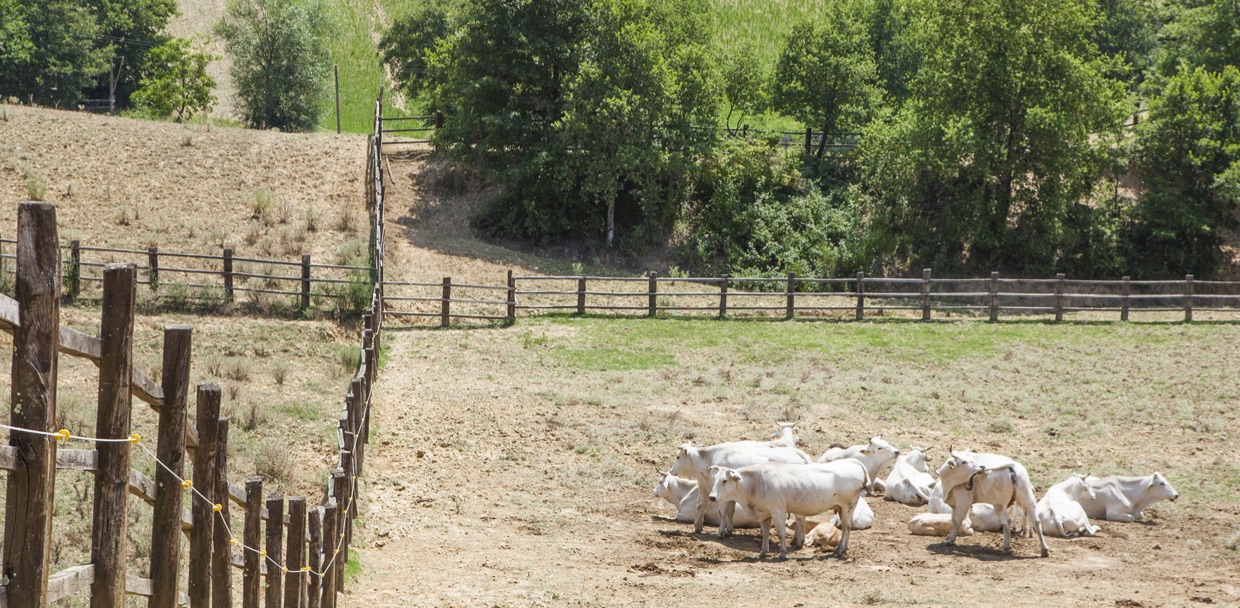
[Photo: Courtesy of Il Borro]
A Mission of Sustainability
Il Borro joined the prestigious Relais & Chateaux collection in 2013. Following this new chapter, the estate kickstarted many efforts aligned with their philosophy of “respect, humility and awareness of sustainability and renewal,” including zero-energy houses, solar panels, and an organic garden to supply produce for their restaurants and home deliveries in Tuscany.
“The principles of biodynamic cultivation and sustainability are evident in numerous projects on the estate,” Salvatore says. “Solar power, electric vehicles, and the construction of a biomass power plant have all minimized our impact on the environment. Il Borro is a negative carbon footprint property—each guest looks to save 105 kilograms of carbon dioxide emission per day.”
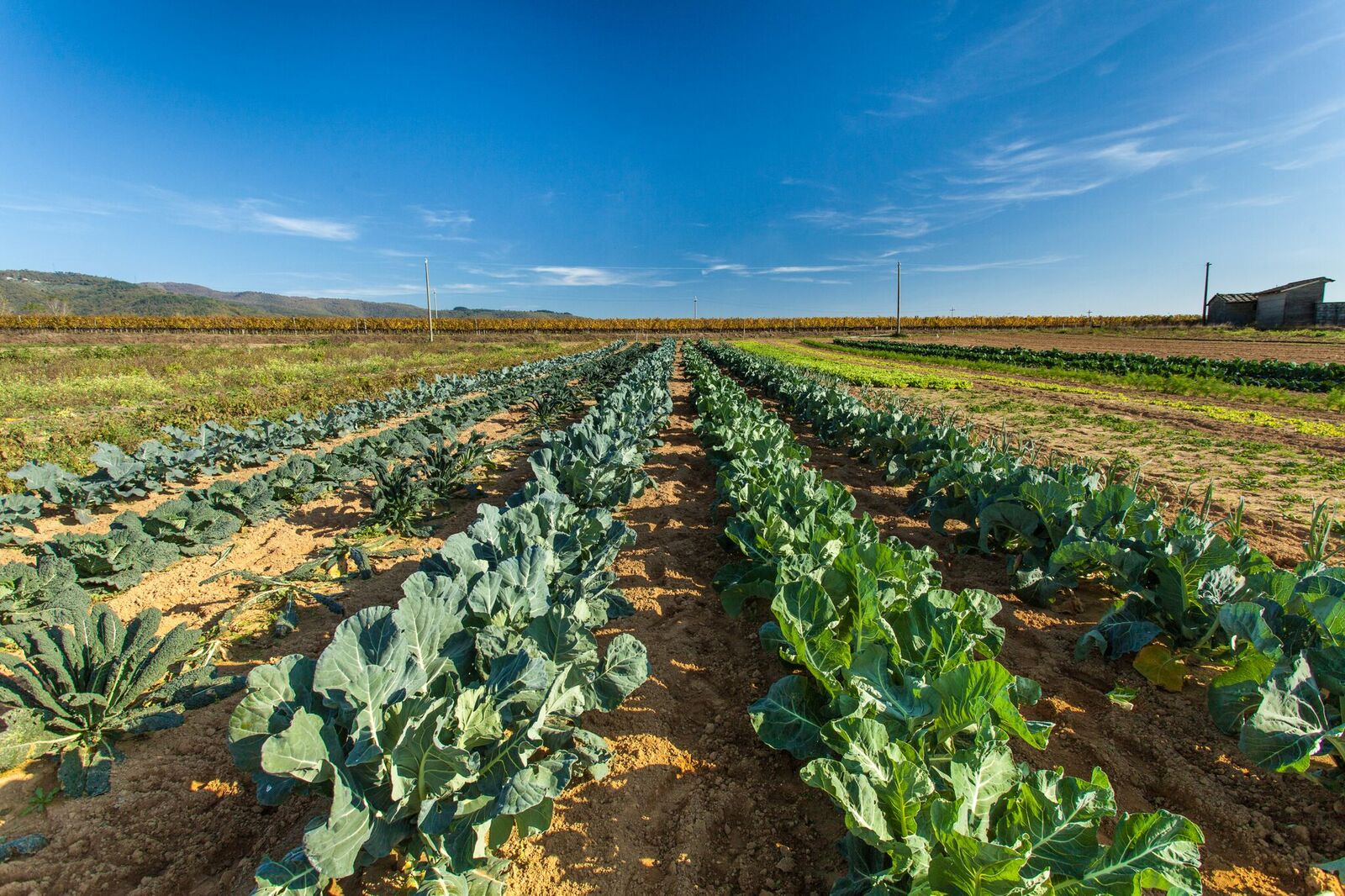
[Photo: Courtesy of Il Borro]
Green Farming Methods
Il Borro embodies a mission of sustainability through caring for and respecting the environment. The Ferragamo family also has worked with local farmers to bring back crops and livestock that are original to the region, including a rare type of wheat and chicken. Committed to sustainable agriculture and development, they use renewable energy and natural fertilizers to protect the land and create a better future for the community.
Orto del Borro is a certified organic program run by Ferruccio’s daughter, Vittoria Ferragamo. The program, which began in 2014, encourages biodiversity and sustainability through tried-and-true farming practices like crop rotation.
These farming methods help ensure the produce is high-quality and abundant, while keeping the land fertile and healthy. Expanding their farm even more, Il Borro welcomed bees for the organic production of honey and chickens who produce organic, free-range eggs.
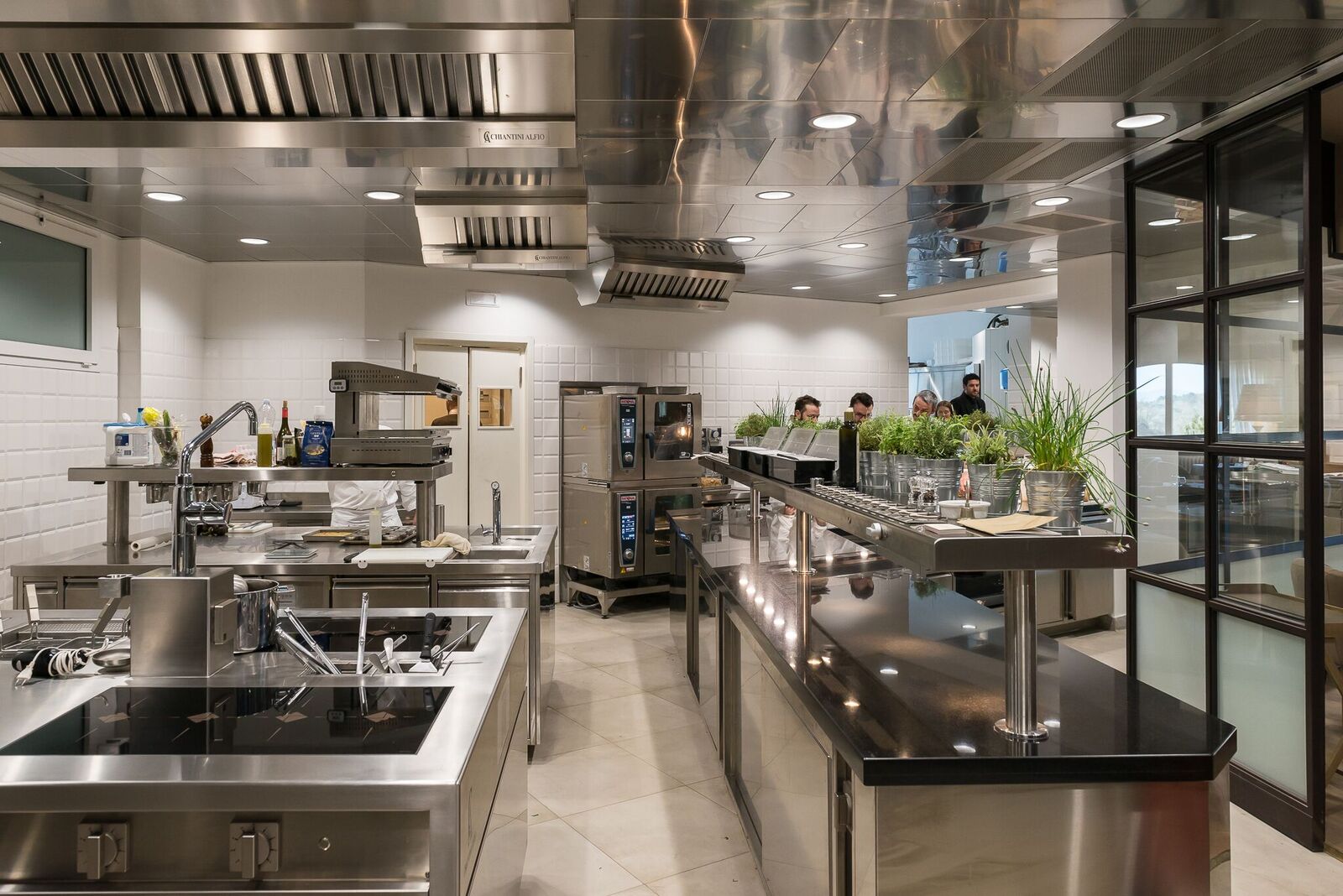
[Photo: Courtesy of Il Borro]
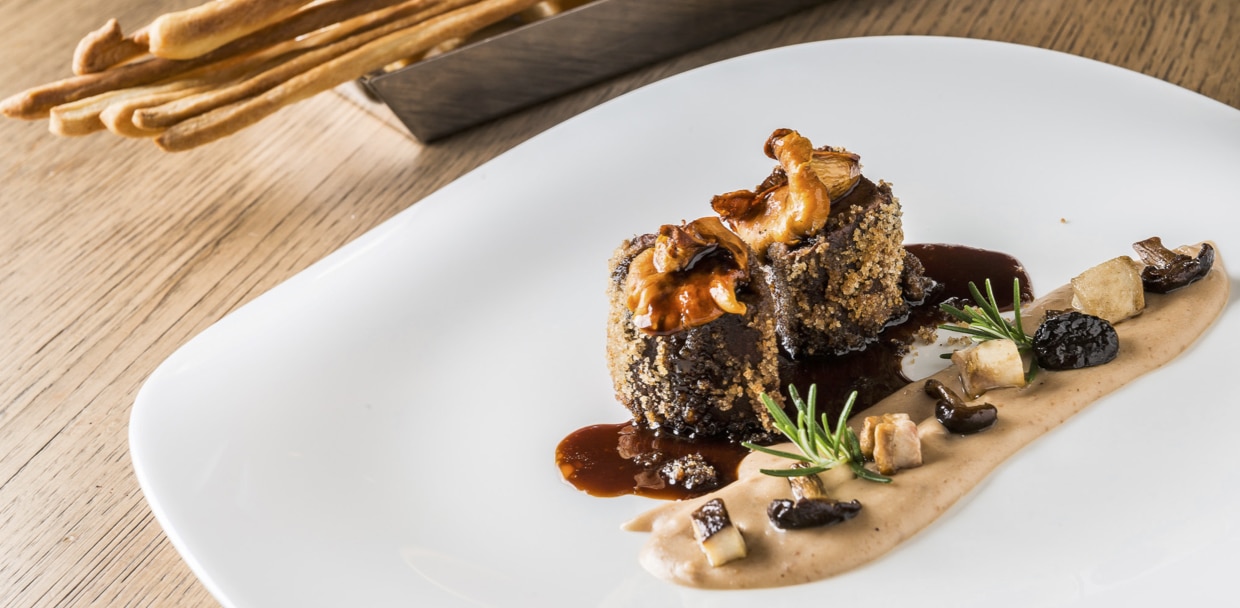
[Photo: Courtesy of Il Borro]
Sustainable Dining
Eco-sustainable cuisine is made easy with immediate access to organic eggs, vegetables, honey, and other organic products. Fresh, organic crops are the primary ingredients in Il Borro’s farm-to-table restaurants Osteria del Borro and Il Borro Tuscan Bistro.
Renovated in 2015, Osteria del Borro creates a warm ambience with its central fireplace and its open kitchen space inviting diners to watch how their food is prepared. It is the first restaurant in Europe to use an ozone air purifier system in the kitchen to ensure healthy air quality and perfect hygiene.
Executive Chef Andrea Campani gives Tuscan cuisine a contemporary twist with fresh and wholesome flavors. “My family and chef Andrea Campani share an ethical vision of eating, the principle of honest food, simplicity and respect for sustainability,” Salvatore says.
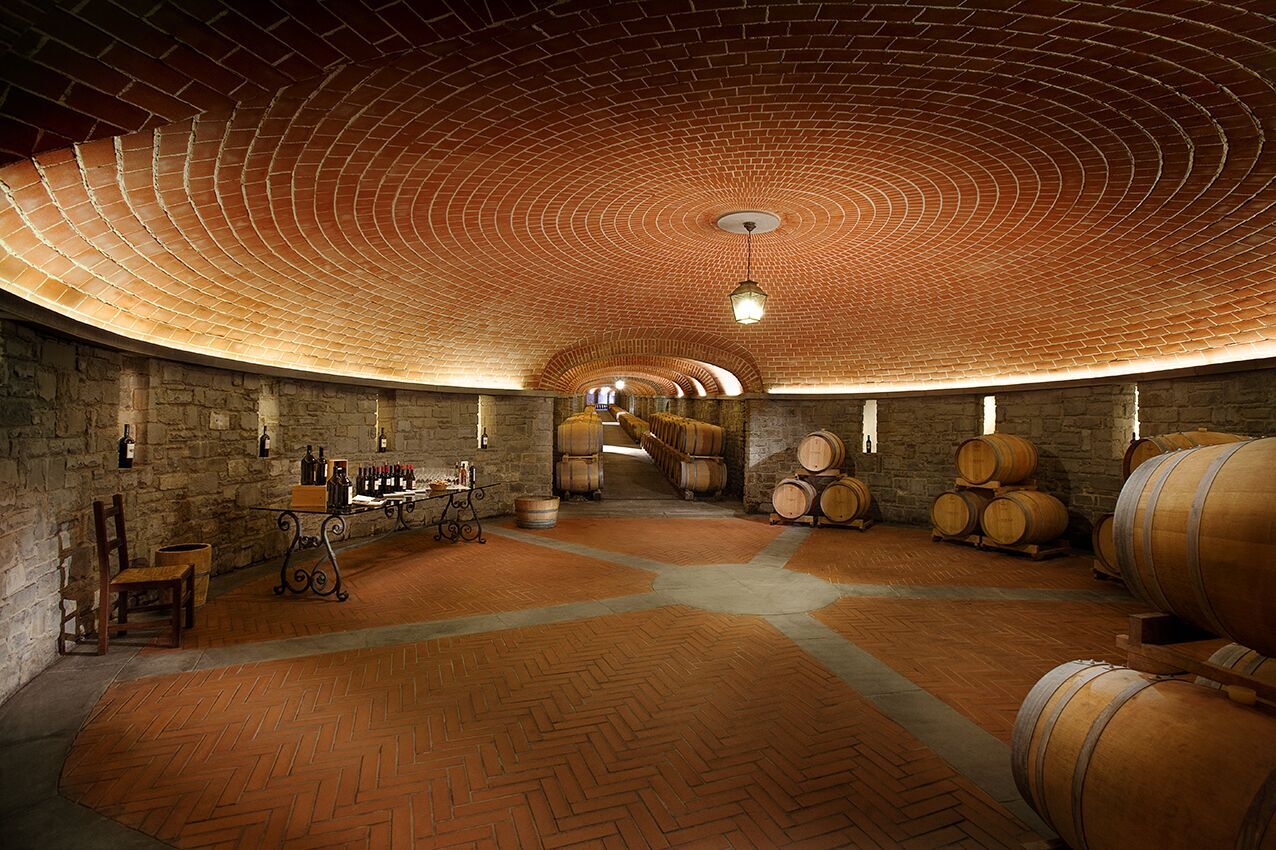
[Photo: Courtesy of Il Borro]
Wine-making & Olive Oil Production
Urged by Salvatore, Ferruccio started his winemaking journey at Il Borro in 1995. Il Borro Cellar, one of the oldest wine cellars in Italy, is where the first Chianti wine was made. Today, guests can learn about the step-by-step process that makes the magic of wine-making possible. The Ferragamo family converted their vineyards to biodynamic cultivation in 2012. Il Borro wines are well known throughout the world and have received prestigious awards and rankings from international wine guides.
The Ferragamos began producing extra virgin olive oil began through hand-harvesting in 1996. They use a biodynamic approach for crushing and pressing the olives to enhance the natural flavor of the oil. In all of their farming practices, the family’s goal is to allow the land to regenerate to preserve the soil’s fertility and yield the highest quality produce.
“We are winemakers, men of the earth, who value sustainable agriculture and want to preserve the environment,” Salvatore says. “At Il Borro, decisions are taken only after much thought about the impact on the wider community and on future generations.”

